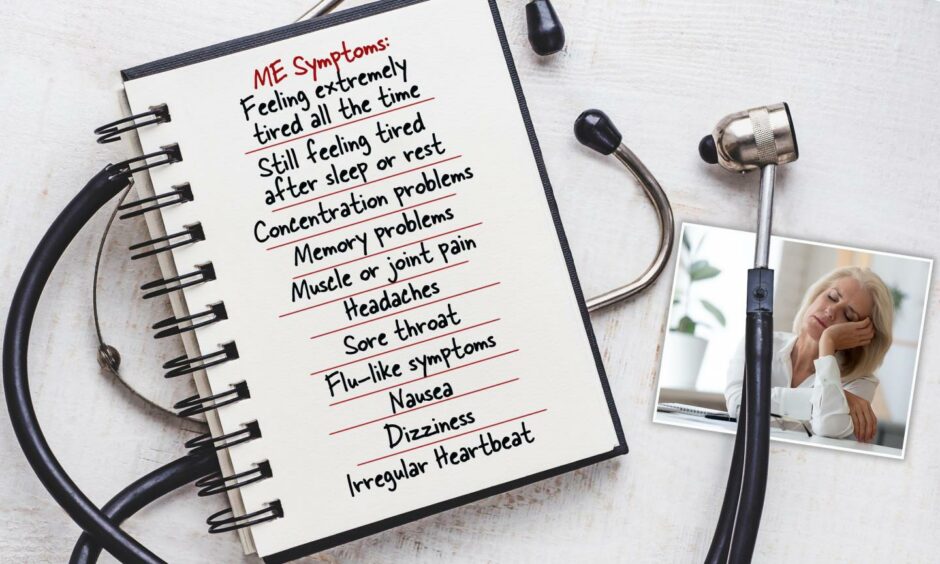Aberdeen teenager Mia Granger used to be the “life of the party”, but a shocking diagnosis six years ago has left her desperate for more support.
Now 18, the former gymnast was told she had ME (myalgic encephalomyelitis) at the age of 12.
Also known as chronic fatigue syndrome, the neuro-immune disease often leaves people unable to work or even carry out basic tasks.
Mia says her teenage years were turned “upside down,” and is missing out on typical everyday things others might take for granted.
‘She was the life of the party… and it completely stopped’
Mia had been a member of the Scottish Rhythmic Gymnastics squad, and would train regularly for competitions around the UK.
However, all of that changed after she developed ME, which is thought to have been brought on by glandular fever.
Causing profound tiredness and cognitive impairment, it left her bedridden and unable to go school for six years.
In that time, Mia has had to watch as her friends have gone on to college or jobs without her.
Mia’s mum Jo said the diagnosis became a “process of elimination”, and the family eventually opted to go private as they searched for answers.
She said: “It took us a long time to get to the place where we had a diagnosis, we were in limbo with no answers for a long time.
“It has absolutely had a huge impact on Mia’s mental health, she has been so down when she’s been unable to get out of bed.
“Mia was the life of the party and then all of a sudden that just completely stopped and she couldn’t move.”
Missing out on ‘things teenage girls do’
The illness has also caused the teenager to suffer panic attacks as she comes to terms with it.
“I’ve learned to try and manage according to what my body allows me to do,” she said.
“Throughout the years, we have found that there is no help or understanding for people suffering with ME.
Next Thursday, @UKHouseofLords will host a debate put forward by @AlfDubs on access to neurological services and the workforce. See this handy briefing prepared by the House for more info: https://t.co/Lu35HtI9Qt
— The Neurological Alliance (@NeuroAlliance) June 1, 2022
“I have had several visits to doctors and hospitals and we have left feeling totally lost and devastated.
“There has never been any empathy or help.”
Delays like Mia’s ‘change your life forever’
Mia has spoken out following new research from the Neurological Alliance of Scotland, which shows nearly half of all adults with a related condition have suffered delays in treatment.
An estimated one million Scots live with the likes of cerebral palsy, stroke, dementia, epilepsy and ME.
And more than one-third tend to wait more than a year for their diagnosis.
The organisation, a coalition of more than 70 related organisations, says more needs to be done to prevent the situation becoming a “mental health crisis”.
It’s calling for better communication between services, an increase in neurological mental health support and better accounting for how prevalent these conditions are.
The alliance’s report says: “It is clear that there is still a lot of work to be done, and we look forward to working with the Scottish Government and others to develop a new strategy for adults and children with neurological conditions.”
More health news…
‘It’s a bleak day for ME patients’: Fury after health watchdog delays new guidelines on treatment


Conversation